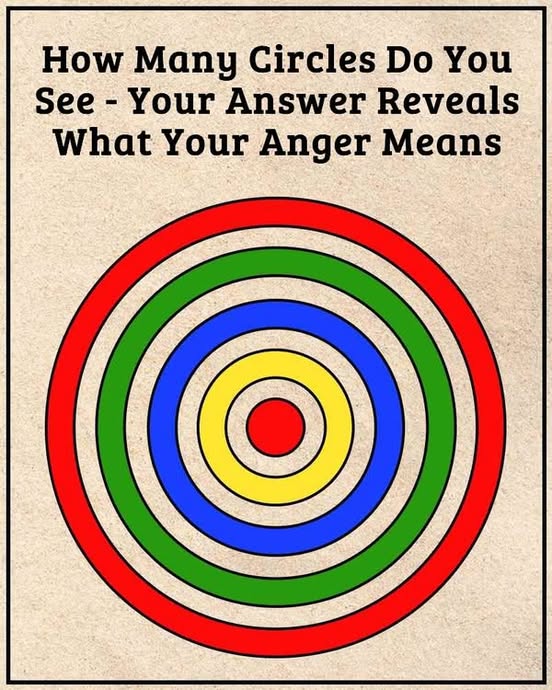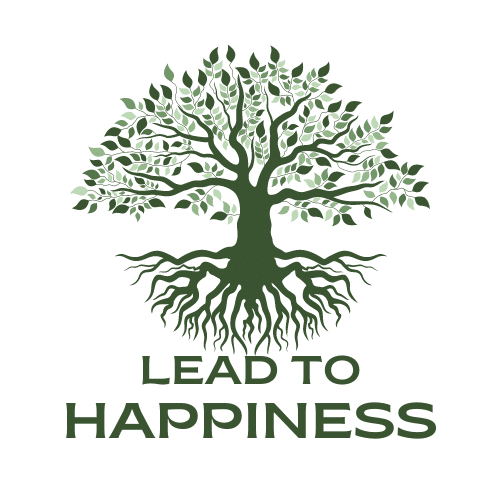The Number of Circles You See Might Reveal More Than You Think…(But Not Necessarily Narcissism)
We’ve all done it — scrolling through our feeds when something grabs our attention. It’s an image full of swirling circles, a bold title shouting:
“How Many Circles You See Reveals If You’re a Narcissist!” 😲🌀
Wait. Narcissist?
That one word instantly hits a nerve. You stop. You count the circles. Maybe you see 4, maybe 12… and suddenly, you’re questioning your entire personality.
“What does it say about me?”
This viral optical illusion doesn’t just mess with your eyes — it plays with something deeper: our desire to know ourselves, to uncover hidden traits, and maybe… to prove we’re not the problem after all.

🎭 Why We’re Obsessed With Illusions Like This
We live in a world that moves fast and judges faster. Everyone is looking for quick clues about who we are — our strengths, flaws, blind spots. Personality quizzes, zodiac memes, “choose a door” tests… they all tap into a universal craving:
The need to understand who we are and how others see us.
Optical illusions, especially the viral kind, go one step further. They appear visual and objective, which gives them power. It’s not just a hunch — it’s what you see… right?
🔍 The Illusion Explained
The famous “circle illusion” is what psychologists call a cognitive illusion — a trick your brain plays, often influenced by your focus, perception, or even your personality type. Some people count 6 circles. Others see 12 or more. It doesn’t mean one of you is wrong — it just shows how uniquely your brain is wired.
The meme claims:
Seeing fewer circles = self-focus or narcissistic tendencies
Seeing all circles = open-mindedness, empathy, and attention to detail
But here’s the catch…
❗ There’s no actual scientific study backing this specific claim.
Still, that doesn’t mean the illusion is meaningless. In fact, how we interpret illusions can reflect parts of how we see the world — and ourselves.
🧠 Is There Any Link to Narcissism?
Narcissism isn’t just about taking too many selfies. It’s a complex personality trait rooted in things like self-perception, emotional regulation, and empathy levels. While no single image can diagnose narcissism (thank goodness!), how we react to such a meme can reveal something:
Did you feel defensive?
Did you joke about it with friends, or silently wonder?
Were you quick to share it — or skeptical?
These reactions say far more than the circles themselves.
Because at the heart of narcissism is how much we need to be seen, validated, or admired — even when it’s wrapped in something as innocent as a viral illusion.
❤️ What This Illusion Really Teaches Us
It’s not about the circles.
It’s about self-awareness.
And that’s what makes these viral tests so magnetic. They offer a mirror — even if distorted — and let us peek at something underneath the surface.
Here’s the real takeaway:
👁️🗨️ You are more than what your eyes see.
🤔 You are more than what a meme says.
💬 But your curiosity? Your willingness to pause and reflect?
That means you care about understanding yourself — and that’s beautiful.
The Eye May Be Tricked, But the Heart Knows
So the next time a viral test promises to “expose” your hidden traits, take it with a grain of salt — but also a spark of wonder.
Because maybe it’s not about being right or wrong…
Maybe it’s about being curious.
And in a world full of noise, illusions, and labels, curiosity is the opposite of narcissism. 🌱✨

